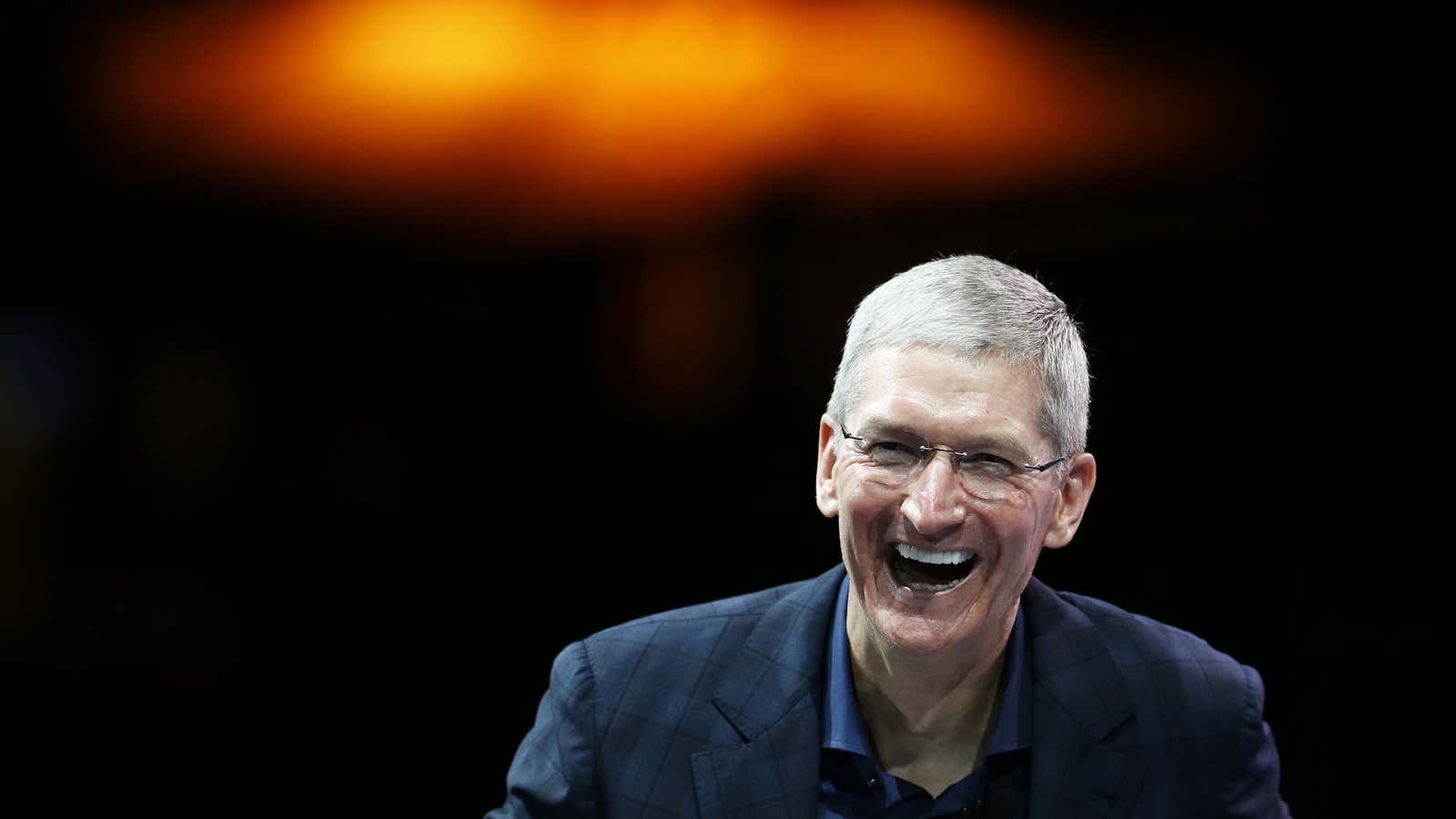When Apple previews its upcoming TV service at its Cupertino headquarters on March 25, it will be the first look that many people in Hollywood—including those creating shows for the upcoming platform—will get of the video service.
Apple has been mum on how and when it will roll out the two dozen or so series it has in the works from creators like Oprah Winfrey, M. Night Shyamalan, Steven Spielberg, and others. Many people working with Apple on the series told the New York Times (paywall) that they have received next to no information from the tech company on how or when their shows with be marketed or released. They have been told loosely that the content is slated for release later this year, likely in the fall.
Born out of Silicon Valley’s tight-lipped tech culture, Apple has been rather vague about its video ambitions. It has touted A-listers signed to create content for the service; heavy investments it is making into high-end programming; and how its service will be more tech-forward than its competitors. But it still hasn’t said when the service will launch, what it will cost (if anything), and how people will find and access the content.
Its opaque entry in to the video space is reminiscent of another tech company that upended Hollywood: Netflix. The streaming service told showrunners notoriously little about how their series performed on the platform when it first got started. Some creators found not being beholden to viewership numbers liberating. Others were shocked to discover their series were being canceled because they failed to attract large enough audiences to justify the expenses, considering they never talked audience numbers to begin with. A lack of viewership metrics also made it difficult for talent to renegotiate their contracts, without a clear understanding of how their shows were doing. Netflix has started sharing some audience figures on earnings calls lately for hits like Bird Box, as it transitions into more of a hit-driven content company and looks to attract big stars.
However, the secretive nature of tech companies is one Hollywood will have to get used to, as new video entrants like Apple arrive and companies like Netflix and Amazon scale up production. Tech companies are known for playing their cards close to the vest in the name of protecting trade secrets. That culture will continue to seep into gossip-fueled Tinseltown as tech companies invest more in TV and film.
Apple has reportedly shared some feedback with creators on the content itself—including requests to make the programming (paywall) more family-friendly.
Apple will likely detail the first slate of shows to land on the service during its event on March 25. If the suggested fall release schedule is correct, Apple’s new platform will be going up against upcoming streaming services from TV mainstays like Disney and Warner Media, which are both set to launch platforms in the fall, as well the start of the fall TV season.




